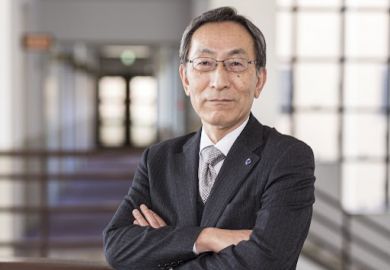It seems axiomatic in higher education that new proposals emanating from government, or any of the myriad statutory and regulatory bodies that exist to monitor, assure or enhance different parts of the sector, will be met with a clarion call to protect institutional autonomy. And rightly so.
Institutional autonomy is vital. It supports academic freedom and is its necessary corollary: without it, higher education institutions cannot be self-governing, and if they are not, the danger is that external interference will ultimately limit academic freedom. Higher education without academic freedom – the ability of staff to pursue research and teach without fear of being censored or disciplined – is not higher education at all. It is incumbent upon all who work in the sector to protect these values, as recognised and enshrined by the United Nations Educational, Scientific and Cultural Organisation’s 1997 recommendation on the subject.
And yet…and yet…institutional autonomy is not the only principle that higher education staff should defend. The sector does not exist in a vacuum, beyond the needs and interests of society at large. Higher education should have at its heart a desire to make a difference to the lives of individuals, regions, nations and the world. Learning and research, teaching and knowledge exchange, are valuable and valued, which is precisely why it is important to monitor, assure and enhance these activities. Institutional autonomy should operate consistently and in harmony with systems of accountability and the legitimate public interest in the sector’s activities. Funding all too often is the accepted reason for external intervention, but who funds higher education – and hence whether an institution is private, public, charitable or for-profit – is not the salient point: public interest in higher education is legitimate precisely because what we do is so important. Greater appreciation of the balance that needs to be struck between institutional autonomy and the public interest would benefit the sector as it grapples with numerous thorny issues.
Writing in Times Higher Education about the recently launched consultation on the future of quality assurance, Madeleine Atkins, chief executive of the Higher Education Funding Council for England, noted the importance of maintaining confidence in academic standards and supporting students’ interests while still respecting institutional autonomy (“Standards-bearers”, Opinion, 2 July). A key part of the proposals relates to developing training and a national register for external examiners. Some doubt whether such a system is needed or whether academics would play along: “The majority of them will not do it,” asserted Derfel Owen, director of academic services at University College London, at the Quality Assurance Agency’s annual conference, held in Leeds on 11 June (“I’m out: compulsory register would deter external examiners”, THE, News, 18 June). While Hefce recognises that the sector has previously discussed and set aside similar proposals, it cites the plan’s “reputational benefits”. There seems weight to that argument. The external examiner system is often referred to as one of the major assurances of the comparability of academic standards between institutions. If that is the case, and the public have a legitimate interest in consistency of standards across the sector, then professionalising external examiners and achieving more consistent recruitment, training and recognition for them naturally follows. Can the sector credibly insist that maintaining more localised mechanisms is a better way to reassure the public?
The Higher Education Academy’s final report into the grade point average system struck a similar balance. The report affirmed providers’ autonomy in determining their own award regulations, but also recognised the GPA’s potential benefits and the advantages that could accrue from its more consistent adoption, compared with the multiple ways in which degree classifications are currently agreed. Addressing Universities UK on 1 July, Jo Johnson, the universities and science minister, threw his weight behind the system, recognising that it would “encourage consistent effort, make it less easy to coast within the 2:1 band and give employers more information about candidates within that classification”. On one level, the debate – and it is clearly a legitimate one – is about which system provides the greatest benefits to students and the sector. On another, it is about whether the academy wishes to adopt a consistent mechanism that could help ensure the public comparability of institutional standards.
Whatever comes of the Hefce consultation and the HEA report, the sector would do well to remember that institutional autonomy is not the only aspect of higher education worth protecting. We must defend it whenever it is attacked, but we must also recognise the authentic and justifiable public interest in our activities and be willing to use our autonomy to engage willingly and collegially in sector-wide developments.
Matthew Andrews is academic registrar at Oxford Brookes University and vice-chair of the Association of University Administrators.
后记
Print headline: Striking the balance between autonomy and the public interest




